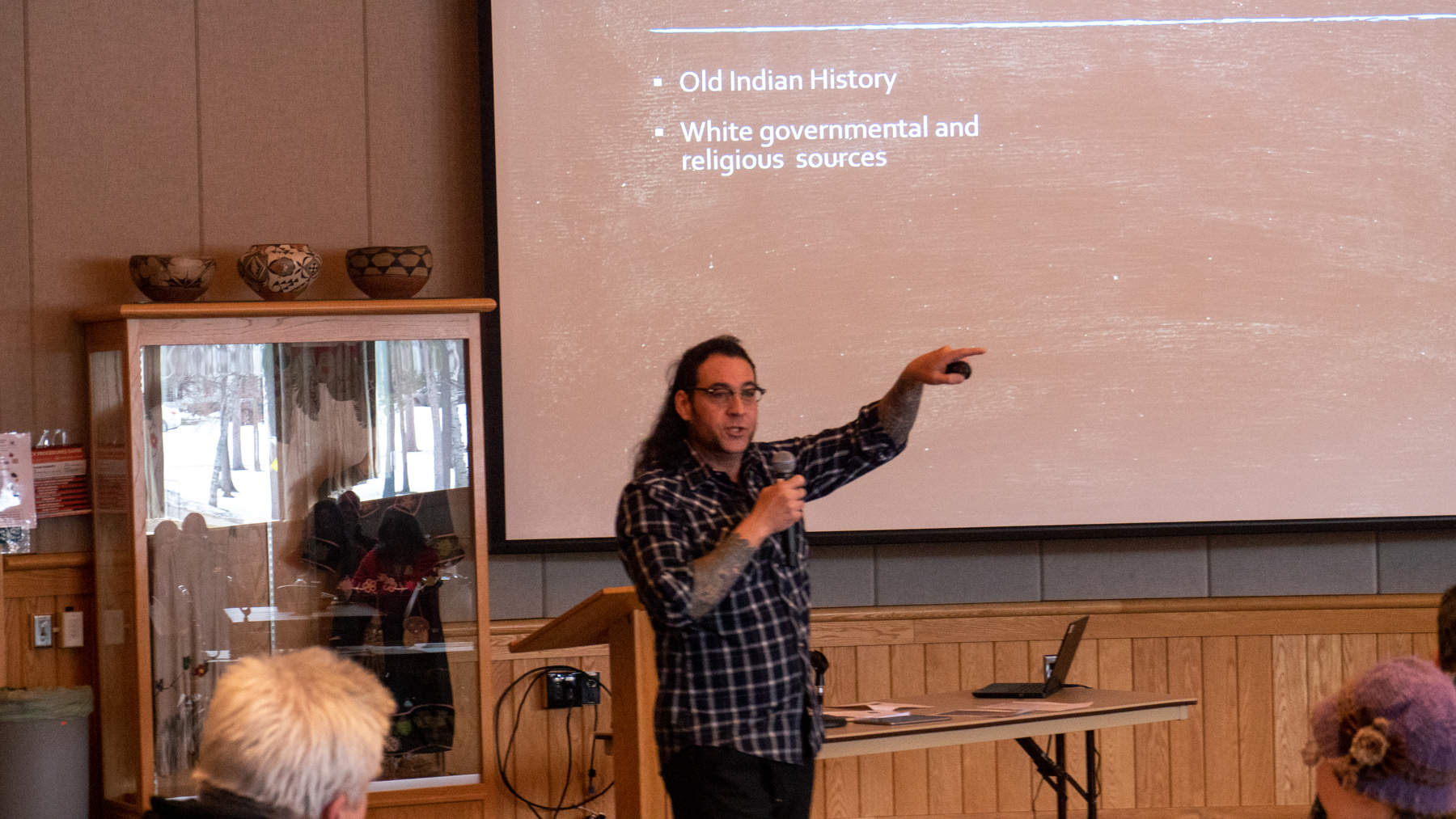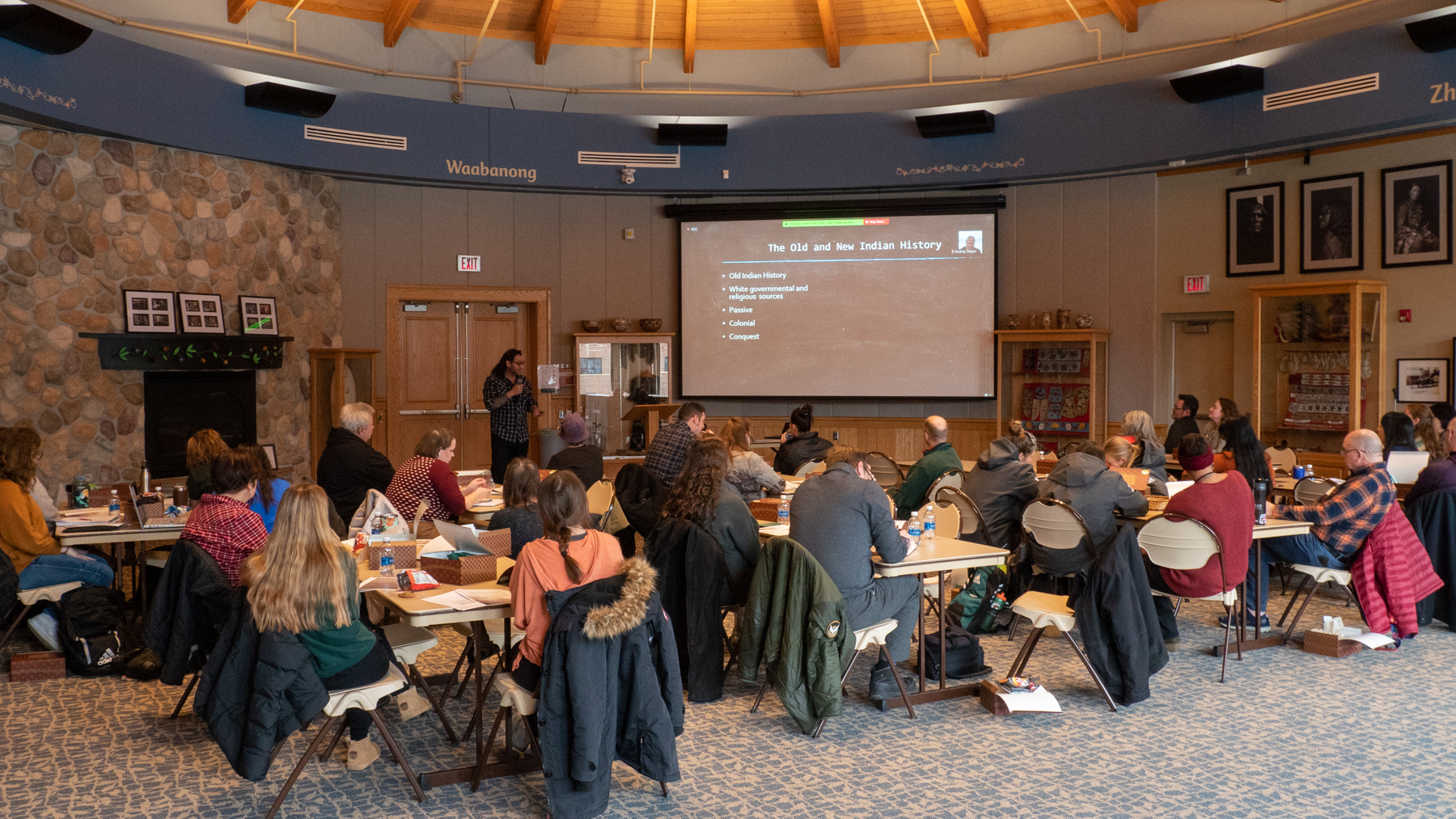
Over 30 people gathered in Bemidji State University’s American Indian Resource Center on Nov. 29 to hear Dr. Dennis Fisher, assistant professor of Indigenous studies at BSU, speak on the history of treaties and their impact on the economic activities and traditional life practices of the Anishinaabeg peoples of Minnesota and Quebec, Canada in the mid to late 19th century.
Fisher’s talk, titled “Treaties, Strategies, and Traditionalism,” examined Indigenous and White perspectives of the time and how cultural differences and divergent understandings led to inequitable outcomes for Indigenous people in relation to treaty rights.

He also provided contextual evidence that the Indigenous peoples relocated to northern Minnesota’s White Earth and Quebec’s Kitigan Zibi reservations not to assimilate in accordance with treaty goals, but to maintain their traditional ways of life including hunting, fishing, ricing and maple syrup making.
A descendent of Algonquin and Nipissing Anishinaabeg from Quebec, Fisher previously taught at White Earth Tribal and Community College. He recently had an article published in American Indian Quarterly titled, “War, Wampum, and Recognition: Algonquin Transborder Political Activism During the Early Twentieth Century, 1919-1931” and is currently under contract with the University of British Columbia Press to publish his upcoming work, “To Not Sell One Perch: Algonquin Politics and Culture at Kitigan Zibi During the Twentieth Century.”
